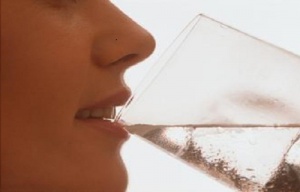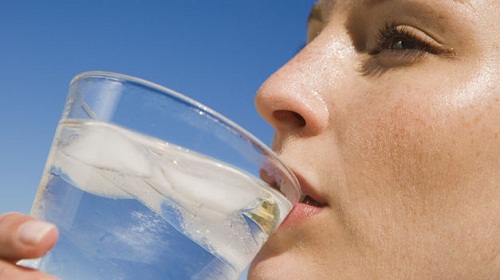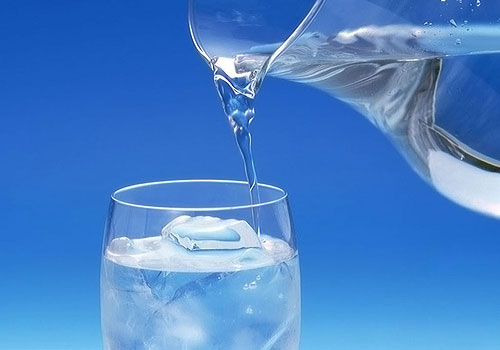Drinking Cold Water after Eating: Dangerous or Beneficial?


Reviewed and approved by the doctor Maricela Jiménez López
What’s wrong with drinking cold water after eating?
Before starting, remember that this data hasn’t been scientifically verified. Still, it’s worth keeping in mind the next time you reach for a glass of cold water after a meal. These findings can help you understand what goes on in your body. Also, it can help you avoid the uncomfortable side effects of drinking cold water after eating.
Drinking cold water after eating can cause indigestion because the cold temperature changes the consistency of the foods we’ve eaten. This makes them harder to digest. For example, fatty foods tend to solidify when mixed with cold water. Also, the fact that food takes longer to digest may cause acid reflux problems.
Drinking more water than usual can also cause trouble by diluting the acid uses to break down foods, slowing down the digestion process. This can make a person feel sluggish and tired after meals, which makes it harder to get things done afterwards.

Drinking cold water with food can also affect those with tooth sensitivity, migraines or strong headaches; drinking water that is too cold can trigger a migraine. Also, it can lead to stomach pain and bloating because some foods expand when eaten with water. The pain lasts longer when we drink too much water because digestion takes more time.
Our stomachs are designed to receive food at a similar temperature to our body’s. When we eat foods that are too cold or hot, our tummies have to work extra at the digestion process. The same happens when we eat foods that are too spicy; they are harder to break down and can cause diarrhoea in some people.
Read also: How to Treat Stomach Indigestion with 5 Homemade Remedies
What’s the best way to drink water?
Even if they say drinking water after meals is bad for you, experts also agree that our bodies need enough water daily in order to function properly. Some suggest that it’s better to drink water before a meal because it gives us a feeling of satiety and helps us eat less. Remember that water has zero calories and you can drink up to two liters a day.
Also, some people believe drinking water during meals can cause fluid retention. In reality, however, it stimulates kidney function and contributes to good hydration. To avoid the digestive problems mentioned above, experts recommend drinking water at room temperature, instead of freezing cold.
You might also like: 7 Easy Ways to Drink Water More Often
Benefits of water

The fact that cold water causes problems when consumed with food doesn’t mean that water is bad for you. Drinking plenty of water daily is crucial to stay hydrated and let the body properly carry out its vital functions. This is true because water keeps our organs and tissues fully hydrated. Also, it improves circulation and gives the body a “push” to eliminate toxins. Drinking water every day is essential and very good for our overall health and well-being.
All cited sources were thoroughly reviewed by our team to ensure their quality, reliability, currency, and validity. The bibliography of this article was considered reliable and of academic or scientific accuracy.
- Davy BM, Dennis EA, Dengo AL, Wilson KL, Davy KP. Water consumption reduces energy intake at a breakfast meal in obese older adults. J Am Diet Assoc. 2008;108(7):1236–1239. doi:10.1016/j.jada.2008.04.013
- Stookey JJ. Negative, Null and Beneficial Effects of Drinking Water on Energy Intake, Energy Expenditure, Fat Oxidation and Weight Change in Randomized Trials: A Qualitative Review. Nutrients. 2016;8(1):19. Published 2016 Jan 2. doi:10.3390/nu8010019
- Ma J., Hu W., Wu D., Zhang Q., Peng C., Cao K., Su H., Drinking cold water increases blood pressure in healthy young students. Blood Press Monit, 2014. 19 (2): 118-9.
- Turner T., Chen X., Zahner M., Opsahl A., et al., FGF21 increases wáter intake, urine output and blood pressure in rats. PLoS One, 2018.
- Brown CM., Dulloo AG., Montani JP., Water induced thermogenesis reconsidered: the effects of osmolality and water temperature on energy expenditure after drinking. J Clin Endocrinol Metab, 2006. 91 (9): 3598-602.
This text is provided for informational purposes only and does not replace consultation with a professional. If in doubt, consult your specialist.








